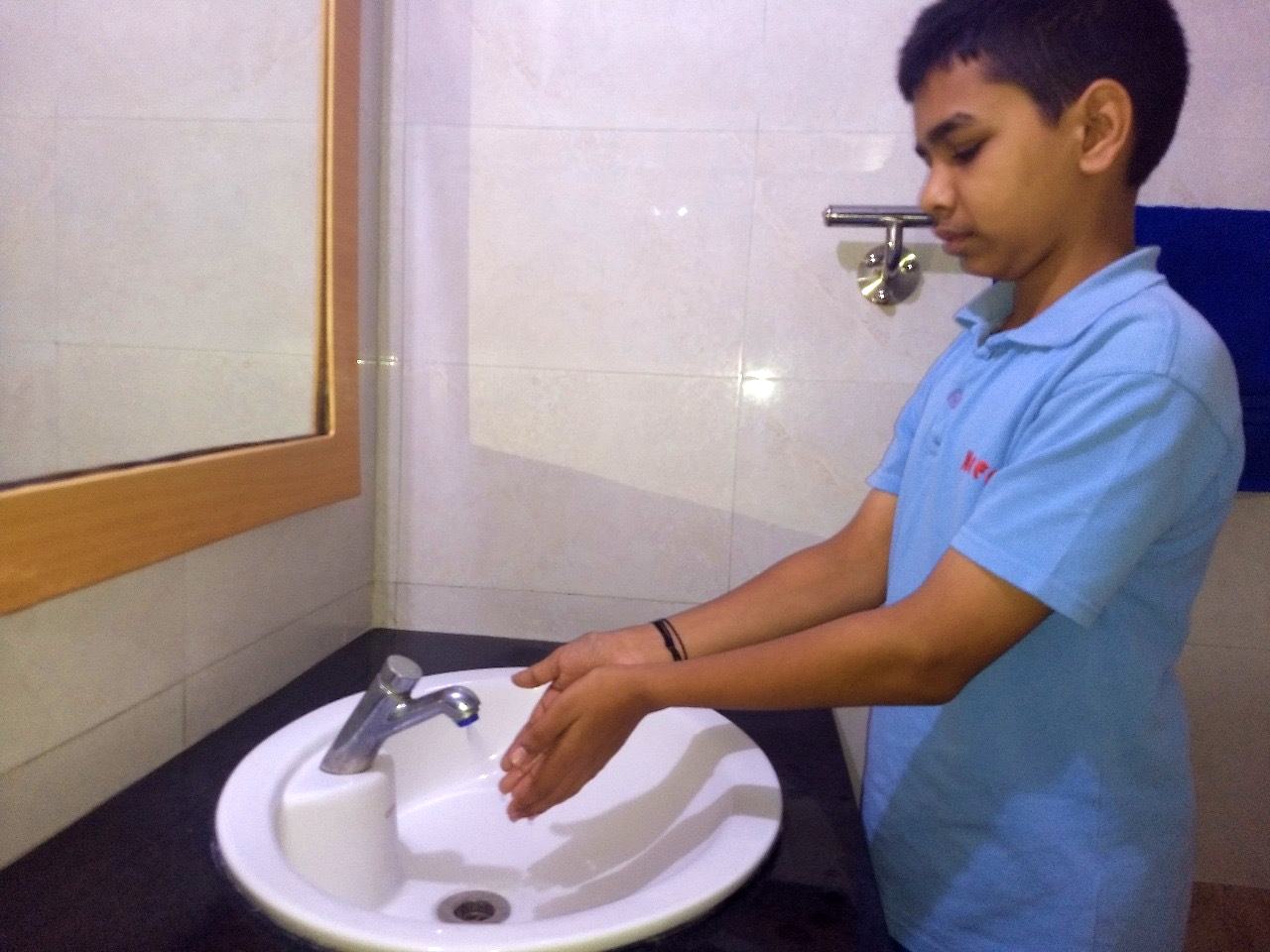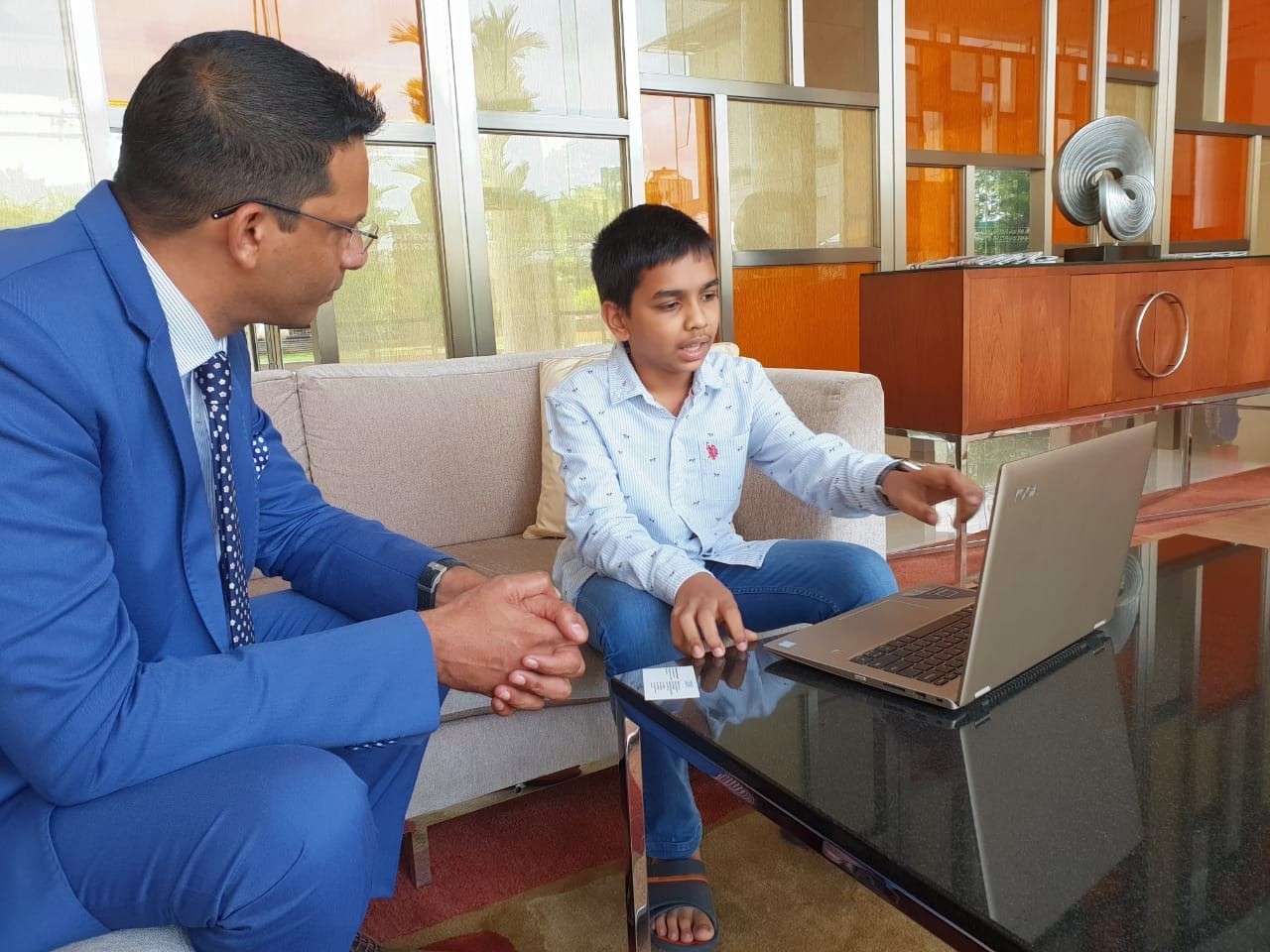The Indian population is estimated to increase to 1.6 billion by the year 2050. This also means that water availability per capita is likely to decrease. A report by ICAR reveals that by 2025, India’s per capita water availability is projected to decline to 1,465 cubic meters, and by 2050, it will drop to 1,235 cubic meters. If these figures drop below 1,000 cubic meters, India will be declared a water-stressed country.
To ensure this does not happen, Rishabh Prashobh (14) a class IX student of National Academy For Learning, Bengaluru, has launched the Jal Mission and saved 70 lakh litres of water in a year.
How? By installing aerators in water taps at hotels, his school and his housing society.

Aerators are small mechanical devices that can be fit into water taps, inside the spout. It mixes air with the water and ensures there is a consistent flow of water through the tap, without any fluctuations caused by a change in pressure.
In taps that supply 15 litres of water per minute, aerators can cut the flow by more than half, to six litres per minute. These devices can save up to 1,274 litres of water a month.
Understanding ground-level issues
Early in 2019, as part of a social initiative organised by 1Million 1Billion (1M1B), a United Nations accredited NGO, Rishabh studied various environmental issues. He was working on a project where he had to analyse an environmental issue and present a solution to tackle the same.
“Though I read about several crises including air pollution, one thing that caught my eye was water scarcity, because this problem was something I noticed first hand in Bengaluru. I saw that several ponds were drying up, and watched the news on lack of water supply to several households,” Rishabh says, adding that he spent three months to analyse which environmental-issue he would focus on.
To understand more about ground-level issues, he spoke to many NGOs, activists and water conservationists in Bengaluru. He understood that for a growing population, the water we demanded was more than what was being supplied. So, the only solution to save water would be by reducing consumption.
Rishabh says, “At the household-level, the best way to reduce water consumption is by fitting aerators in water taps. Usually, the taps in our kitchens and bathrooms release 6 litres of water per minute, and aerators can cut them down to 3 or 4 litres.”
Implementing the solution
In July 2019, to test whether the aerators would work, Rishabh installed one in his grandmother’s home in Bengaluru. He could not do it at his own home, as the water bill was charged for the entire building with 17 homes, and split equally.
“Within a month of fitting just one aerator, we noticed a 30% drop in my grandmother’s water bill. Earlier the bill was around Rs 340, but the rate dropped to around Rs 250,” says Rishabh.
Apart from this, to test the efficiency of the aerator, he conducted tests at home.
“I filled a standard-sized bucket up to its brim using a tap without an aerator, and then filled the same bucket from a tap with an aerator. I noted how much of the bucket was filled within one minute, and there was not much of a difference,” Rishabh says.
Once he was convinced that aerators could work as a solution, in August 2019, he approached the Residents’ Association of his society, explained the solution, and showed them proof of his grandmother’s water bill. He was given the opportunity to speak to all residents of the society, who unanimously agreed to implement the solution.
Two aerators were fit in each apartment. One at the kitchen sink and the other in the wash-basin in the bathroom. Each household paid for the aerators, which cost approximately Rs 300 each.
“Within one year, the apartment community was able to cut down on their water consumption and save 20 lakh litres of water,” says Rishabh.
In August 2019, Rishabh approached two Marriott hotels in Cochin, Kerala and presented his idea to the General Manager of the hotel.

“Being environmentally-conscious, the manager readily agreed and installed one aerator in every bathroom in both the hotels. Within one year, both were able to save 50 lakh litres of water,” Rishabh says.
In November 2019, he approached Indira Jayakrishnan, the principal of his school, National Academy For Learning. She was also impressed by the idea. She says that in 2017, she had introduced a “Green NAFL” initiative to encourage students to save electricity, paper, and grow indoor plants in their classrooms and common areas. Rishabh’s idea only further helped the school’s initiative.
She says, “When Rishabh approached me with the proposal and explained how aerators would benefit the school, I was impressed and immediately agreed. He helped us procure the aerators and the plumber fit one in every second sink. We could not measure the impact it generated within a year since the school closed down due to the COVID-19 lockdown. Regardless, it was definitely a step towards cutting down water usage as the device would streamline the water expelled from the tap.”
In 2021, Rishabh hopes to take his initiative to more schools and hotels, as well as cinema theatres and malls across the city. His aim is to help the city save 1 crore litres of water.
No comments:
Post a Comment